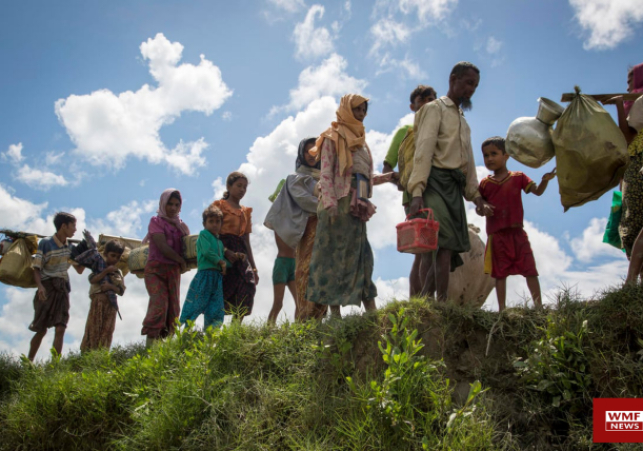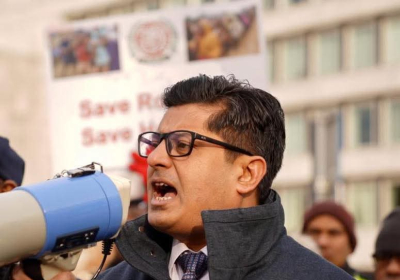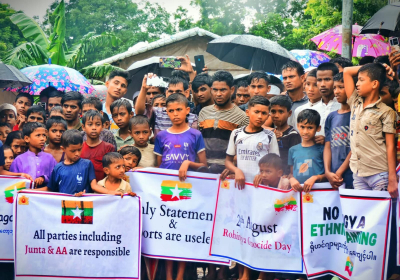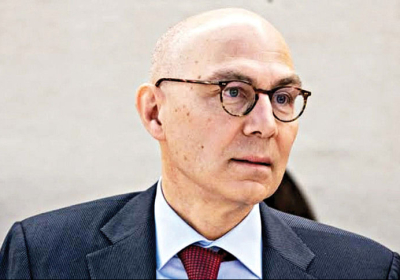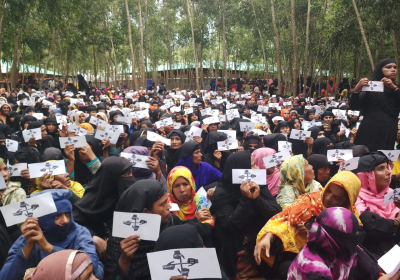Rohingya Genocide: Ongoing Struggle With No End in Sight
- By --
- Saturday, 23 Aug, 2025
Nearly eight years after the mass exodus of Rohingya Muslims from Myanmar, the crisis shows no signs of resolution. Despite repeated international pledges, close to a million Rohingya remain confined to refugee camps in Bangladesh, while many others are scattered across India, Malaysia, and Indonesia, often facing hostility and uncertainty about their future.
The Myanmar military, accused of committing genocide by United Nations investigators, continues to deny citizenship and basic rights to those Rohingya who remain in Rakhine state. Many live in restricted “internally displaced persons” settlements with little access to education, healthcare, or freedom of movement.
Meanwhile, overcrowded camps in Cox’s Bazar, Bangladesh, remain plagued by poverty, crime, and limited economic opportunities. Host countries, including Bangladesh, India, and Malaysia, have expressed concern over the long-term sustainability of housing such large populations, with tensions occasionally escalating over repatriation plans.
International legal proceedings, such as the genocide case filed at the International Court of Justice (ICJ), have progressed slowly. Human rights advocates argue that without stronger political will from major global powers, accountability will remain elusive.
As conditions worsen, humanitarian organizations continue to call for international action, but a durable solution — whether through repatriation, resettlement, or recognition of citizenship rights in Myanmar — remains out of reach. For the Rohingya, the prospect of returning to a normal, dignified life still appears distant.
Rohingya: A Community Abandoned to Endless Suffering
The Rohingya genocide is not a past event but an ongoing reality. Each day that passes without justice is another day of suffering for hundreds of thousands of innocent people. The world has condemned, documented, and debated their plight but has done little to change it.
For decades, Myanmar stripped the Rohingya of their identity, refusing to recognize them as citizens of their own homeland. What followed was systematic violence: killings, mass rapes, and entire villages burned to the ground. In 2017, nearly a million fled across the border to Bangladesh, carrying only the traumas of survival.
Today, those camps in Cox’s Bazar stand as symbols of inaction crowded, desperate spaces where new generations grow up without schools, rights, or hope. Others who sought refuge in India, Malaysia, and beyond find themselves trapped between xenophobia and the fear of deportation.Those who remain in Rakhine live under militarized apartheid, locked in ghettos within their ancestral land.
The Rohingya suffer not because the world does not know, but because the world refuses to act. Nations weigh geopolitical interests over humanity, and accountability is delayed in courtrooms while families face hunger in tents. Silence in the face of genocide is complicity.
The international community must demand change citizenship rights in Myanmar, justice against the perpetrators, and resettlement options for refugees. Without these steps, speeches of sympathy are hollow. The Rohingya are not asking for charity; they are asking for dignity, recognition, and a place in the world.
The genocide has never ended it simply continues in slow motion. And each passing year without justice is another wound to the conscience of humanity.

